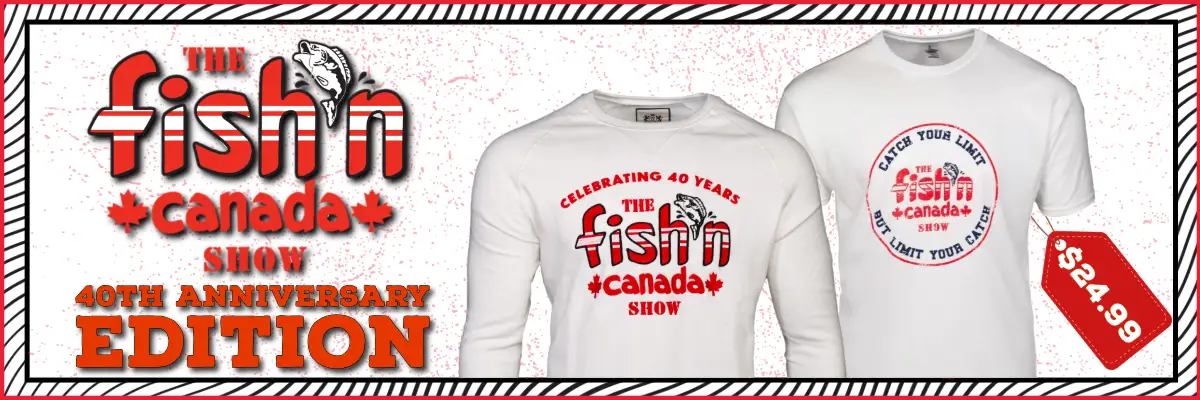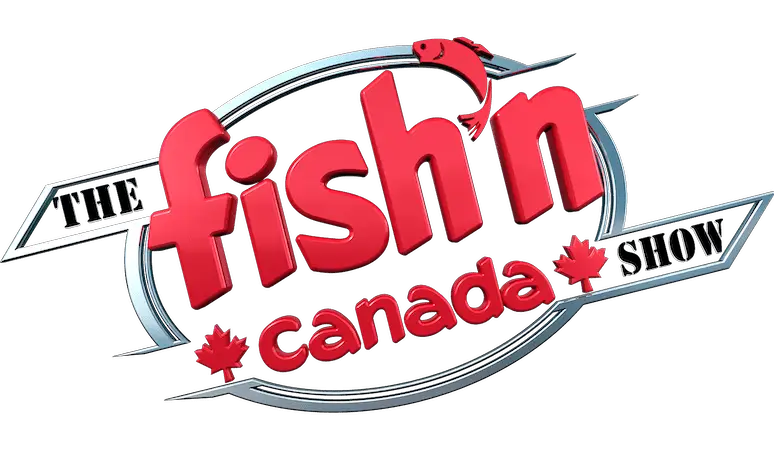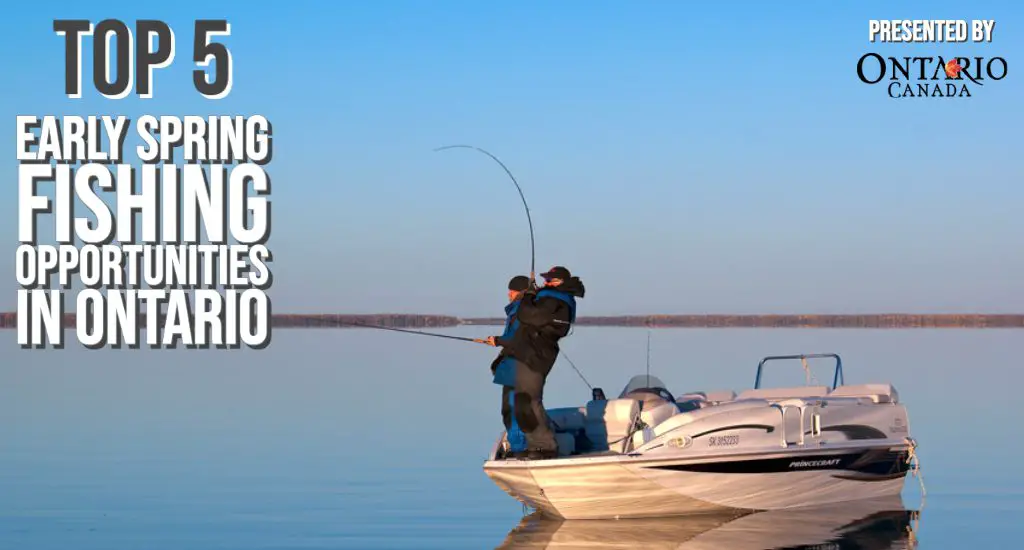Presented by Destination Ontario
March has arrived and, although there is still snow on the ground and ice on the lakes, spring is officially on the minds of anglers all over the province. So, to get you excited about the season to come, we decided to compile a list of a few of our favourite early spring pastimes that keep us busy from ice out to walleye opener.
NOTE: Be sure to check your local regulations as many areas are closed to some of the species below during the spring period.
In no particular order, here are 5 of the best early spring fishing opportunities for Ontario anglers:
1 – Last Ice
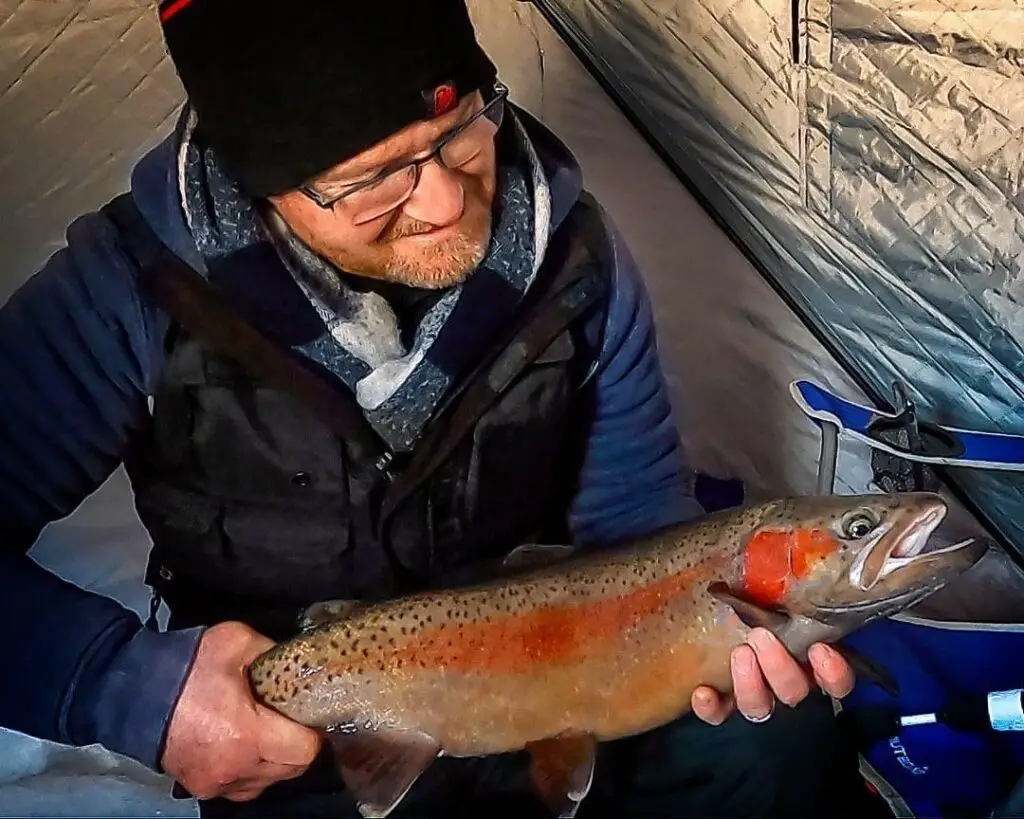
Things may be getting warmer, but ice season is not over quite yet.
In fact, despite positive temperatures beginning to find their way more frequently into the forecast, many lakes, especially in Northern Ontario, see ice stick around well into March.
This window provides anglers with a uniquely northern fishing experience as warm spring highs of March can make things comfortable enough that ice fishing in a t-shirt is not out of the realm of possibility.
In terms of what is biting, Walleye are closed in many areas, but species such as Lake Trout, Perch, Crappie, Whitefish, and Pike are all excellent options. In fact, Pike may even begin their spawning preparations when the ice is still present, making them extra aggressive and fun to catch.
Finally, although ice can survive some positive temperatures, those looking to fish in these conditions should take all precautions necessary and avoid areas that see early losses in ice. For a full guide to staying safe this ice fishing season, check out the link below:
2 – Great Lakes Lake Trout

Lake Trout are another excellent early spring target, especially for those who live around the Great Lakes.
As many are aware, Lake Trout are a cold-water species, preferring temperatures around 50 degrees. While this preference may send them to deep water during the summers, this very same trait sees them swarm the shallows when the slow warming waters of our Canadian springs stick at temperatures out of even their comfort range.
In the Great Lakes, March and April will see these fish seek out the warmer sections of the lake, often around that 20 – 50 feet of water range before they make their journey to deep water later in the year. This provides anglers with a brief angling window where casting for Lake Trout is perfectly possible. Heck, on some smaller bays (and back lakes), anglers casting towards ice shelves can even get them on topwater!
If you’re still itching to break out the trolling gear, downriggers, Lead Core, and especially planer boards still remain excellent Lake Trout tools.
For a few bait recommendations from Ang and Pete, check out the link below:
3 – Ice Out Pike
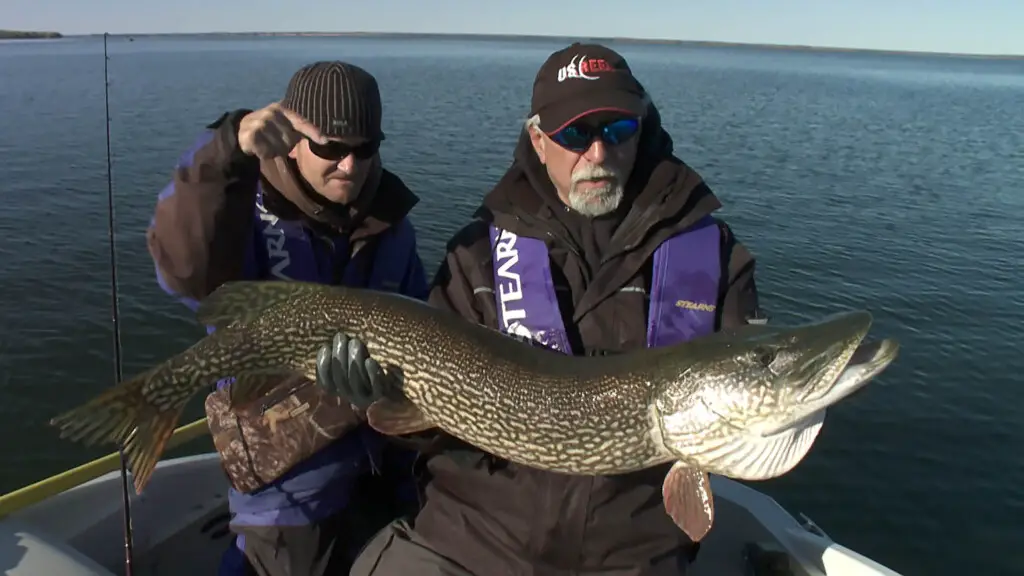
All spring-spawning fish ramp up their activity when the water begins to warm, but none make the transition quite as early as the Northern Pike.
Unlike other species that wait for things to get a bit warmer, Pike begin laying their eggs once the water temperature reaches a mere 40 degrees, meaning pre-spawn feeding, migrating, and staging happens well before the ice is completely gone from the lake.
Thankfully for anglers who are over the ice season, Pike spawning and staging tends to take place in shallow, weedy bays – areas that thaw early and hold heat throughout the early spring.
“As soon as the launches allow it, I’m out there,” says Ang. “Spring is, by far, the best time of the year to land a trophy Pike and I don’t want to miss the brief window when the big girls are in shallow.”
Pete also adds that getting out there as close to ice out as you can is always best as once the fish are into their spawn, getting them to feed becomes a much more difficult task.
4 – Pre-Season Panfish
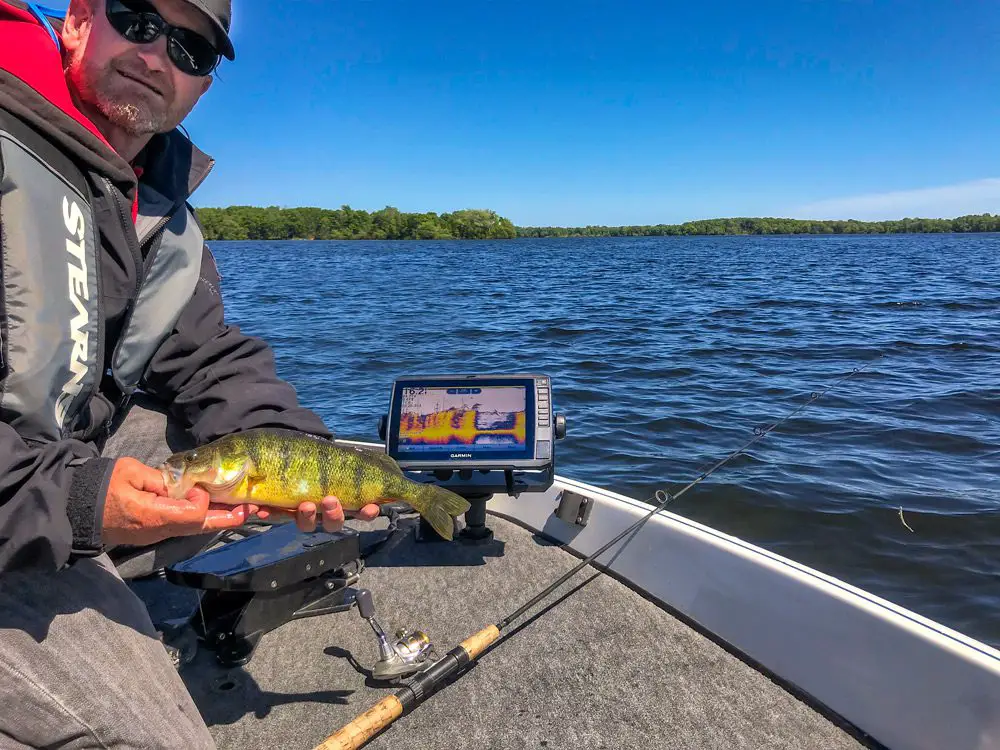
This spot on our list is dedicated to those of you with spring shore lunch plans in mind.
Similar to Pike, the Perch’s springtime decisions revolve entirely around their spawn. This sends them, by the thousands, into shallow weedy bays right around ice out where they feed until called to spawn when temperatures reach around 45 degrees.
When it comes to catching these abundant and hungry predators, small and subtle is often the way to go. Small jigs with live bait, spinners, and stickbaits are often the preference. Some anglers even keep their ice fishing tackle in use and employ small spoons and jigging raps.
However you choose to fish them, one thing is for certain – a shore lunch of perch is a great way to kick off a new fishing season!
5 – Spring Steelhead

Finally, can one really talk about spring fishing without talking about Steelhead?
Steelhead are certainly the kings of spring on our country’s west coast, and they surely have a case to the east as well. Although they may not have any ocean to run from, these eastern fish still spend their springs making long migratory runs up rivers, in this case from the Great Lakes, as they prepare for their spawn. Virtually all major tributaries of the Great Lakes will see runs of steelhead but some are much more notable than others.
In southern Ontario, the Credit, Ganaraska, Saugeen, and Bighead are all excellent spring steelhead fisheries. In the north, the St. Marys is tough to beat, but the Neebing, McIntyre, and the countless other tributaries of Lake Superior are great options as well.
In terms of bait, these spawning fish will have a tough time overlooking an egg pattern and both conventional and fly anglers can take advantage of this craving.
A few seasons ago, Pete walked us through this exact technique on southern Ontario’s Ganaraska River. The link to that episode can be found below:
With so many great fishing opportunities in Ontario, there is plenty of reason to brave the elements, risk the cold fingers, and hit the water this March!
